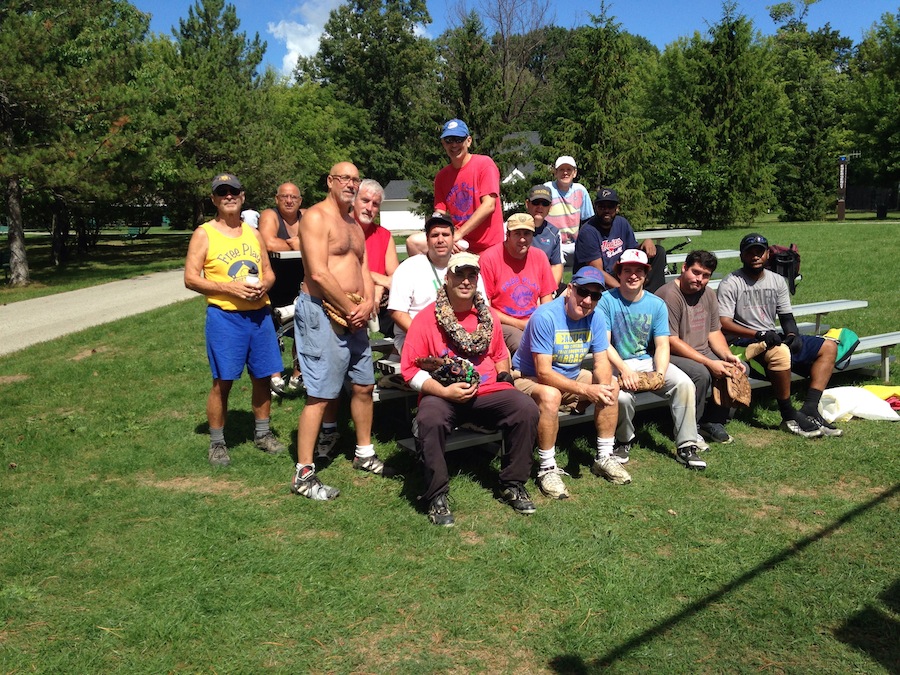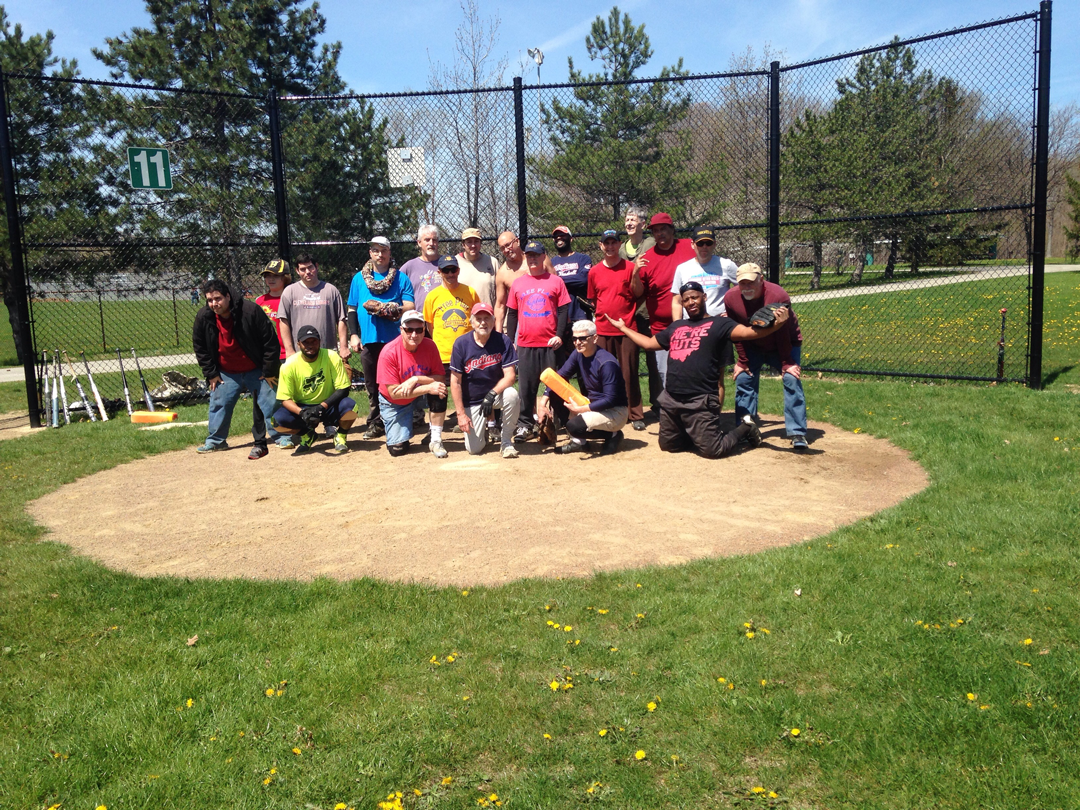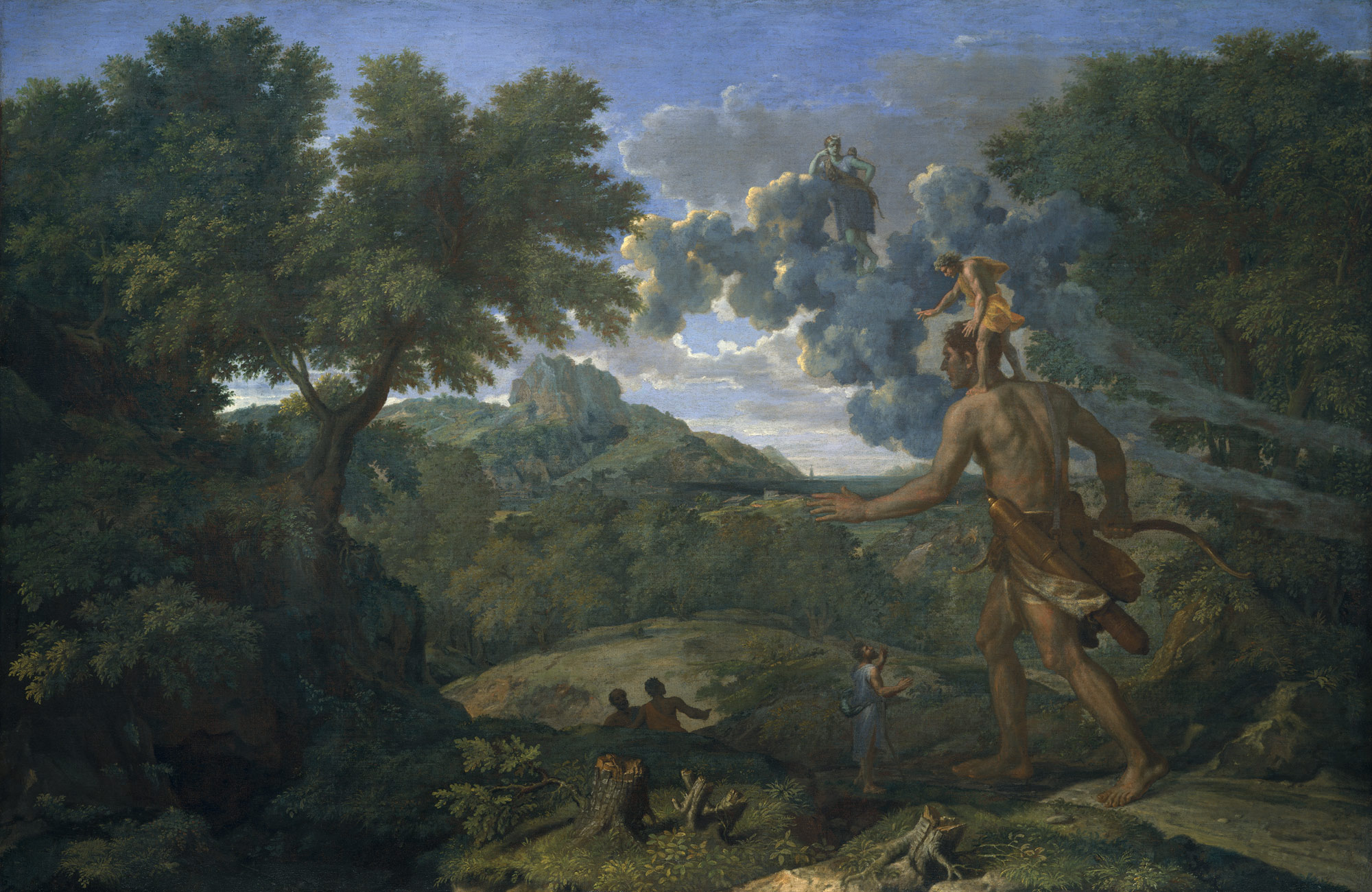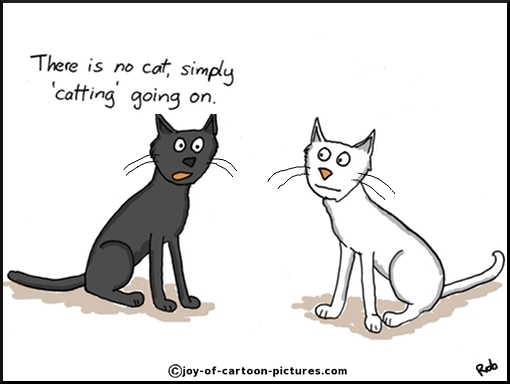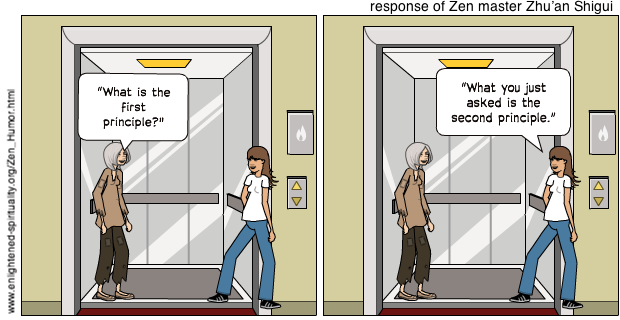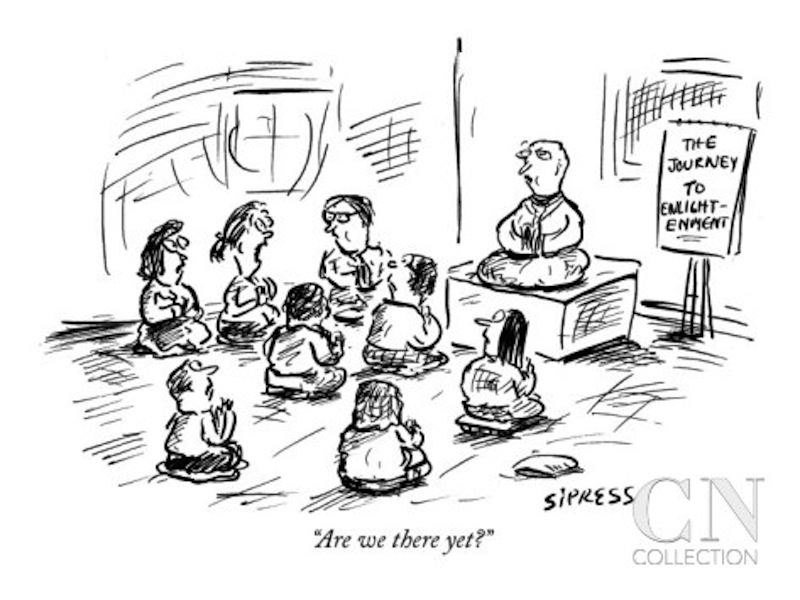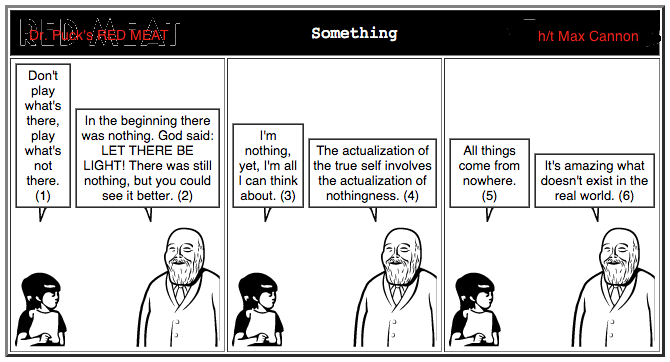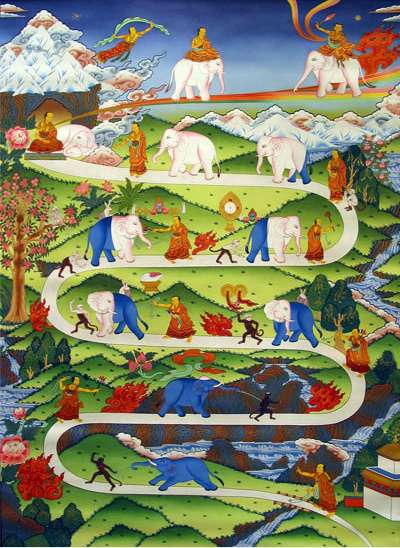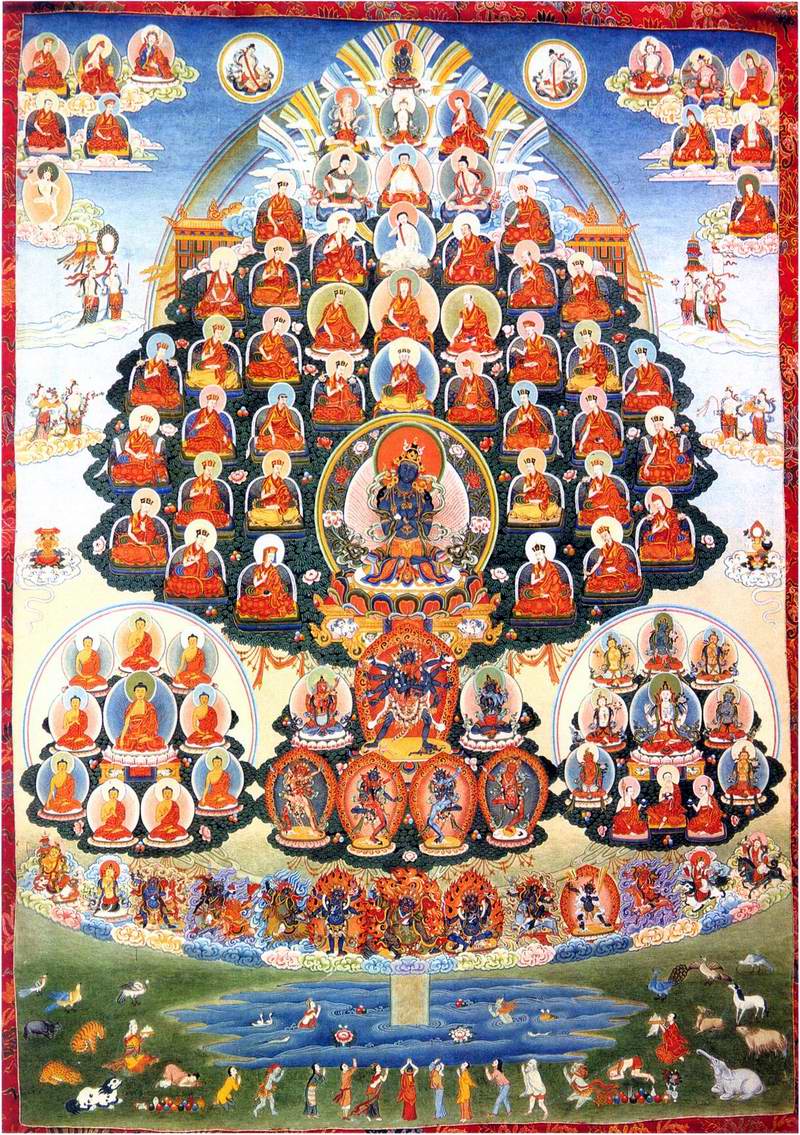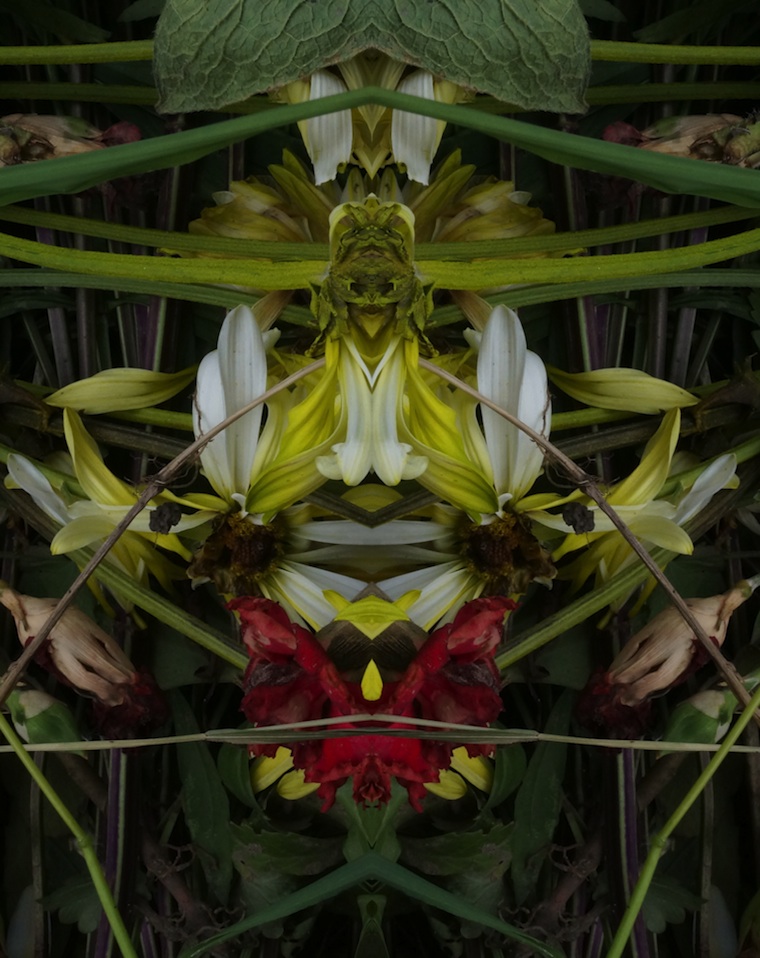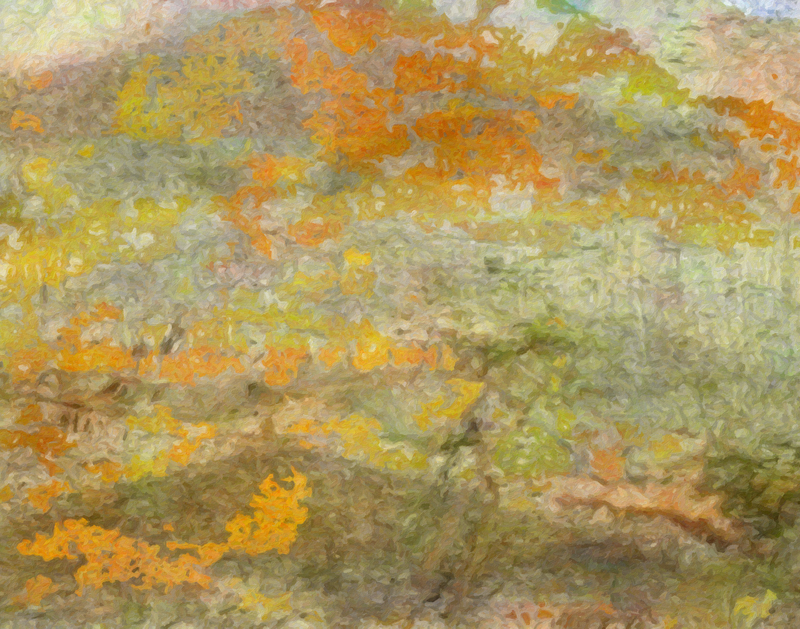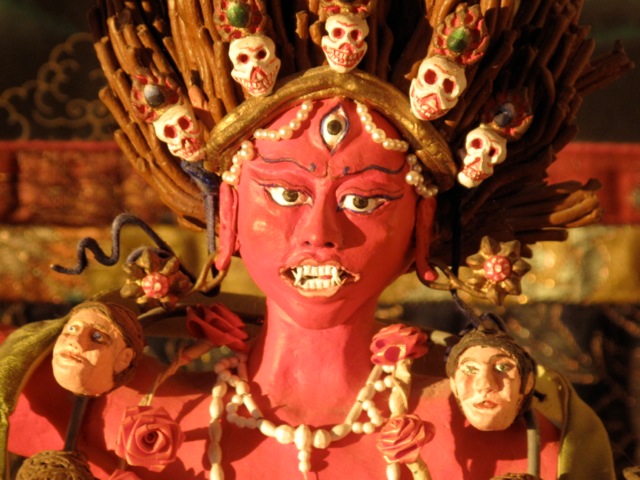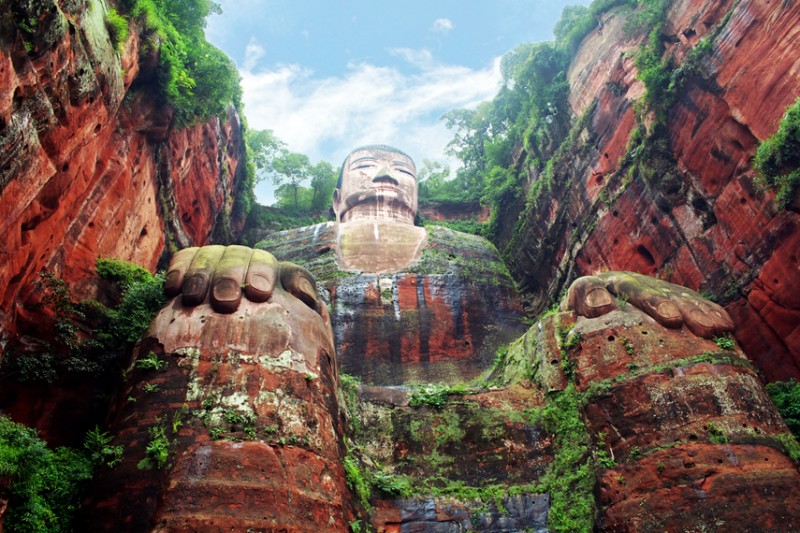Alan Alda and The Center for Communicating Science for creating such an educational and creative venue!
Thus I heard. On one occasion the Blessed One was living at Gaya, at Gayasisa, together with a thousand bhikkhus. There he addressed the bhikkhus.
“Bhikkhus, all is burning. And what is the all that is burning?
“The eye is burning, forms are burning, eye-consciousness is burning, eye-contact is burning, also whatever is felt as pleasant or painful or neither-painful-nor-pleasant that arises with eye-contact for its indispensable condition, that too is burning. Burning with what? Burning with the fire of lust, with the fire of hate, with the fire of delusion. I say it is burning with birth, aging and death, with sorrows, with lamentations, with pains, with griefs, with despairs.
“The ear is burning, sounds are burning…
“The nose is burning, odors are burning…
“The tongue is burning, flavors are burning…
“The body is burning, tangibles are burning…
“The mind is burning, ideas are burning, mind-consciousness is burning, mind-contact is burning, also whatever is felt as pleasant or painful or neither-painful-nor-pleasant that arises with mind-contact for its indispensable condition, that too is burning. Burning with what? Burning with the fire of lust, with the fire of hate, with the fire of delusion. I say it is burning with birth, aging and death, with sorrows, with lamentations, with pains, with griefs, with despairs.
“Bhikkhus, when a noble follower who has heard (the truth) sees thus, he finds estrangement in the eye, finds estrangement in forms, finds estrangement in eye-consciousness, finds estrangement in eye-contact, and whatever is felt as pleasant or painful or neither-painful- nor-pleasant that arises with eye-contact for its indispensable condition, in that too he finds estrangement.
“He finds estrangement in the ear… in sounds…
“He finds estrangement in the nose… in odors…
“He finds estrangement in the tongue… in flavors…
“He finds estrangement in the body… in tangibles…
“He finds estrangement in the mind, finds estrangement in ideas, finds estrangement in mind-consciousness, finds estrangement in mind-contact, and whatever is felt as pleasant or painful or neither-painful-nor-pleasant that arises with mind-contact for its indispensable condition, in that too he finds estrangement.
“When he finds estrangement, passion fades out. With the fading of passion, he is liberated. When liberated, there is knowledge that he is liberated. He understands: ‘Birth is exhausted, the holy life has been lived out, what can be done is done, of this there is no more beyond.'”
That is what the Blessed One said. The bhikkhus were glad, and they approved his words.
Now during his utterance, the hearts of those thousand bhikkhus were liberated from taints through clinging no more. link-accesstoinsight.org
Richard Feynman
How Fire Is Made Ahmed el-Bedavi (d. 1276), founder of the Egyptian Bedavi Sufi Order. Retold by Idries Shah. “Tales of the Dervishes“
Once upon a time a man was contemplating the ways in which Nature operates, and he discovered, because of his concentration and application, how fire could be made.
This man was called Nour [Light]. He decided to travel from one community to another, showing people his discovery.
Nour passed the secret to many groups of people. Some took advantage of the knowledge. Others drove him away, thinking that he must be dangerous, before they had had time to understand how valuable this discovery could be to them. Finally, a tribe before which he demonstrated became so panic-stricken that they set about him and killed him, being convinced that he was a demon.
Centuries passed. The first tribe which had learned about fire reserved the secret for their priests, who remained in affluence and power while the people froze.
The second tribe forgot the art and worshipped instead the instruments. The third worshipped a likeness of Nour himself, because it was he who had taught them. The fourth retained the story of the making of fire in their legends: some believed them, some did not. The fifth community really did use fire, and this enabled them to be warmed, to cook their food, and to manufacture all kinds of useful articles.
After many, many years, a wise man and a small band of his disciples were traveling through the lands of those tribes. The disciples were amazed at the variety of rituals which they encountered; and one and all said to their teacher: ‘But all these procedures are in fact related to the making of fire, nothing else. We should reform these people!’
The teacher said: ‘Very well, then. We shall restart our journey. By the end of it, those who survive will know the real problems and how to approach them.
When they reached the first tribe, the band was hospitably received. The priests invited the travelers to attend their religious ceremony, the making of fire. When it was over, and the tribe was in a state of excitement at the event which they had witnessed, the master said: ‘Does anyone wish to speak?’
The first disciple said: ‘In the cause of Truth I feel myself constrained to say something to these people.’
‘If you will do so at your own risk, you may do so,’ said the master.
Now the disciple stepped forward in the presence of the tribal chief and his priests and said: ‘I can perform the miracle which you take to be a special manifestation of deity. If I do so, will you accept that you have been in error for so many years?’
But the priests cried: ‘Seize him!’ and the man was taken away, never to be seen again.
The travelers went to the next territory where the second tribe were worshipping the instruments of fire-making. Again a disciple volunteered to try to bring reason to the community.
With the permission of the master, he said: ‘I beg permission to speak to you as reasonable people. You are worshipping the means whereby something may be done, not even the thing itself. Thus you are suspending the advent of its usefulness. I know the reality that lies at the basis of this ceremony.’
This tribe was composed of more reasonable people. But they said to the disciple: ‘You are welcome as a traveler and stranger in our midst. But, as a stranger, foreign to our history and customs, you cannot understand what we are doing. You make a mistake. Perhaps, even, you are trying to take away or alter our religion. We therefore decline to listen to you.’
The travelers moved on.
When they arrived in the land of the third tribe, they found before every dwelling an idol representing Nour, the original fire-maker. The third disciple addressed the chiefs of the tribe:
‘This idol represents a man, who represents a capacity, which can be used.’
‘This may be so,’ answered the Nour-worshippers, ‘but the penetration of the real secret is only for the few.’
‘It is only for the few who will understand, not for those who refuse to face certain facts,’ said the third disciple.
‘This is rank heresy, and from a man who does not even speak our language correctly, and is not a priest ordained in our faith,’ muttered the priests. And he could make no headway.
The band continued their journey, and arrived in the land of the fourth tribe. Now a fourth disciple stepped forward in the assembly of people.
‘The story of making fire is true, and I know how it may be done,’ he said.
Confusion broke out within the tribe, which split into various factions. Some said: ‘This may be true, and if it is, we want to find out how to make fire.’ When these people were examined by the master and his followers, however, it was found that most of them were anxious to use firemaking for personal advantage, and did not realize that it was something for human progress. So deep had the distorted legends penetrated into the minds of most people that those who thought that they might in fact represent truth were often unbalanced ones, who could not have made fire even if they had been shown how.
There was another faction, who said: ‘Of course the legends are not true. This man is just trying to fool us, to make a place for himself here.’
And a further faction said: ‘We prefer the legends as they are, for they are the very mortar of our cohesion. If we abandon them, and we find that this new interpretation is useless, what will become of our community then?’
And there were other points of view, as well.
So the party traveled on, until they reached the lands of the fifth community, where firemaking was a commonplace, and where other preoccupations faced them.
The master said to his disciples:
“You have to learn how to teach, for man does not want to be taught. First of all, you will have to teach people how to learn. And before that you have to teach them that there is still something to be learned. They imagine that they are ready to learn. But they want to learn what they imagine is to be learned, not what they have first to learn. When you have learned all this, then you can devise the way to teach. Knowledge without special capacity to teach is not the same as knowledge and capacity.”
